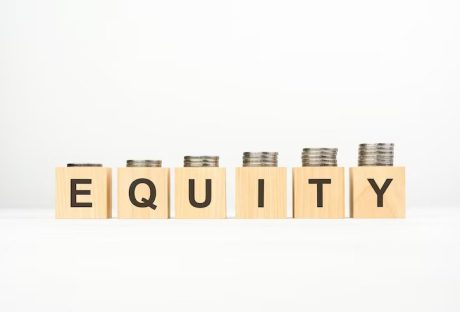Inflation is up, money is tight, and your credit score is in the gutter. What a way to start the year!
Instead of wallowing in self-pity, it’s time to finally do something about your unfortunate credit score. This January, kick-off an improvement plan to improve your credit score by the time the clock strikes midnight on Dec. 31.
5 Lucrative Ways Improve Your Credit Score:
1. Know What You’re Working With
You can’t fix a problem you can’t see. If you’ve been avoiding checking your credit score for fear of what you’ll find, get over yourself. Now is the time to set aside your pride and review the damage. Your credit score impacts nearly every financial move you make. Working to improve it now, before you consider shopping for a major purchase, can make your life easier.
Pull up your free annual credit report to review the data that’s been reported to the credit bureaus. If you’ve got missed payments, high credit utilization, or too many accounts, take note. Then consider your overall score. Anything under 700 should be seen as an opportunity to improve. Now you’re ready to create your action plan.
2. Take Action Daily
You can make measured improvements on your credit score just by being mindful of your daily actions. If you struggle with overspending, pause before you swipe your card. Consider whether the purchase you’re about to make meets your goals and if you’ve got the money to repay the balance.
If the answer to either is no, resist the urge to buy. Instead, save up for want-based purchases so you can treat yourself without sacrificing financial security.
In an e-commerce age, you probably can’t eliminate plastic from your purchasing repertoire entirely, but you can be smarter about it. Familiarize yourself with different payment options like a credit builder card. These cards are secured by a funds transfer or initial deposit. Every time you pay your bill, your good payment history is reported to the credit bureaus. Over time, this great track record can improve your score.
3. Get Your Budget on Point
The way you spend often dictates how well you can keep up with the demands of your bills. While everyone has core expenses across housing, food, and transportation, it’s essential to manage one’s variable expenses. Sit down with the last two months of your spending history to identify budget busters and trends you’d like to address.
If dining out is a sore spot for your budget, create a system to help you indulge with purpose. Set a dollar amount that you can spend without dipping into cash reserves dedicated for other expenses. Think about why you like to spend in this category and whether there’s another way to fill your cup.
If your real desire is to spend time with friends, pivot to hosting a small potluck dinner once a month. Adjust your spending toward this event, and you just may find you like the results better than gathering at restaurants.
4. Dispute Inaccuracies
Your comprehensive credit report may be telling lies about you. If your careful review identifies inaccuracies in your report, it’s in your best interest to dispute them. Late payments are one of the biggest dings on your credit report. If you’re a reliable payer, it’s only fair to fix any errors in your report.
First, reach out to the company reporting the information to the bureaus to dispute your account status. Then report the error to the credit reporting bureaus. You’ll need to include a dispute form and documentation supporting your case.
This process can take months to resolve, so stay the course on other credit-boosting activities while you wait. Inaccurate reports happen, so it’s important to review your credit report regularly so you can quickly address them.
5. Attack the Two Most Impactful Credit Factors
Put your energy into the most impactful parts of your credit score: on-time payments and credit utilization. Your payment history drives 35% of your credit score. If you have a history of late payments, you’re killing your score. Catch up on missed payments and create a system to help you manage your bills. Set up autopay for your core bills (rent/mortgage, utilities, insurance, etc.) so you can ensure that your obligations are covered.
The second most impactful area of your financial behavior is credit utilization, which makes up 30% of your score. Credit utilization — the percentage of your available credit that you’re using at any given time — signifies how well you manage money. Work to keep your utilization below 30% to earn a good mark from the credit bureaus.
If you can, request a credit limit increase to improve that percentage, but resist the urge to tap into it. Consider making payments toward your balance as you make changes to keep your utilization low.
Creating the Accountability to Stay on Track
Any goal is more achievable when you breathe life into it. So create a vision board of your credit score goals and post it where you can see it daily. Talk about your plan with your friends and family to create an accountability team for your new credit-building habits. Monitor your progress regularly and course-correct if you need to.
The more you interact with your plan and assess your behavior, the more likely you are to be successful. Who knows? After a year of hard work, sacrifice, and intentional effort, your score could even climb from poor to exceptional.
Read Also:
- Revolving Debt Vs Installment Debt – Which Impacts your Credit Score
- Why Would I Need A Business Credit Report?
- No Credit Rating Check Lendings Online split Second Authorization
- 5 Credit Card Perks that are Noteworthy
- How a Smart Guy Gets an Amazing Commercial Lease with Bad Credit

























